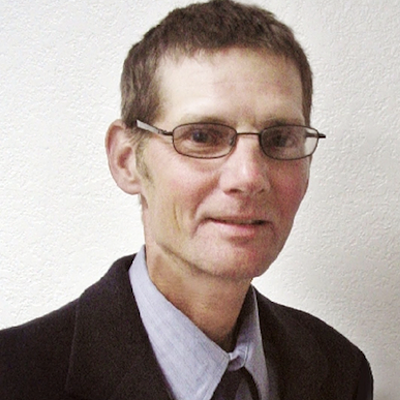Len Munsil of the Center for Arizona Policy said his group has come to the realization that the topic had become a "political football."
"Marriage--the foundation of our society--is too important to politicize," said Munsil in a prepared statement. "For that reason, we are announcing today that our coalition intends to gather signatures to place a comprehensive, constitutional marriage amendment on the 2006 ballot. We are taking this issue directly to the people."
If gay marriage has become a political football, it's the Center for Arizona Policy that kicked it off, at least in Arizona, where a law limiting marriage to one man and one woman is already on the books.
Nonetheless, following the passage of gay-marriage bans by voters in 11 states last November, CAP's legislative team began rounding up support for a proposed constitutional amendment that would have banned not only gay marriage, but all other forms of "counterfeit marriage," including domestic partnerships. It would have also prohibited cities and counties from providing benefits to unmarried partners of employees. The proposal would have gone before voters in 2006.
To put the amendment on the 2006 ballot through an initiative, CAP will have to gather nearly 184,000 valid signatures by July of next year.
The decision to abandon the legislative effort came after Rep. Marian McClure of Tucson introduced a competing measure that would have banned gay marriages, but not domestic partnerships.
Steve May of the Arizona Human Rights Fund, which lobbies for gay and lesbian rights, said CAP's proposal was too far-reaching.
"It's not just against homosexuals; it's against all people who are not married," May said. "Their proposal was aimed at single people, straight cohabitating people and certainly gay and lesbian Arizona citizens. They're going after everybody who's not exactly like them."
May suggested that CAP's decision to push for such a far-reaching constitutional amendment had created wider opposition than the group had anticipated.
"They'd rather be mean than win," he said.
A former Republican lawmaker who represented Maricopa County for two terms after his 1998 election to the House, May added that the Arizona Human Rights Fund was developing its own ballot proposition that would create a statewide registry for any Arizona couple who wanted to establish a domestic partnership rather than get married. While the details have yet to be fleshed out, May said the proposal would "recognize these relationships and give them certain benefits but also certain obligations and responsibilities to each other."
May expected the proposal would come together sometime by late January or early February. He hoped that lawmakers could be persuaded to place the question on the ballot, but if they don't act, the group is ready to undertake an initiative effort.
"Assuming all of the numbers look good and that we actually have a chance of winning, we'd be able to raise money nationwide," May predicted. "Arizona could be the first state that actually enacts some piece of civil equality by a public vote. It would be amazing to do that."
On a less sexy topic, Gov. Janet Napolitano unveiled her proposed $7.9 billion budget at the end of last week. This year's budget was about $7.2 billion.
Napolitano's plan called for increased education spending to implement all-day kindergarten, a big boost for prisons to increase salaries, more spending on water-conservation efforts, a pay increase to help state employees with higher health-insurance and retirements costs, higher salaries for state troopers and prosecutors, and small increases for universities.
Napolitano also proposed trimming personal property taxes for business equipment and providing tax breaks for businesses that partner with universities.
Napolitano would borrow roughly $300 million for school construction and another $58 million to cover the ongoing costs of a lawsuit over tax rates that the state lost.
The idea of borrowing money to balance the state's books brought grumbles from the GOP legislative leadership, who are seeking to avoid smoke-and-mirror strategies.
The Joint Legislative Budget Committee predicts that overall state revenues will increase by about $494 million for the next fiscal year, which begins in July. But new spending commitments on education, health and welfare programs, prisons, state employee health insurance and retirement benefits, along with a planned $189 million contribution to the state's rainy day fund, will cost $971 million, leaving a $477 million gap.
















